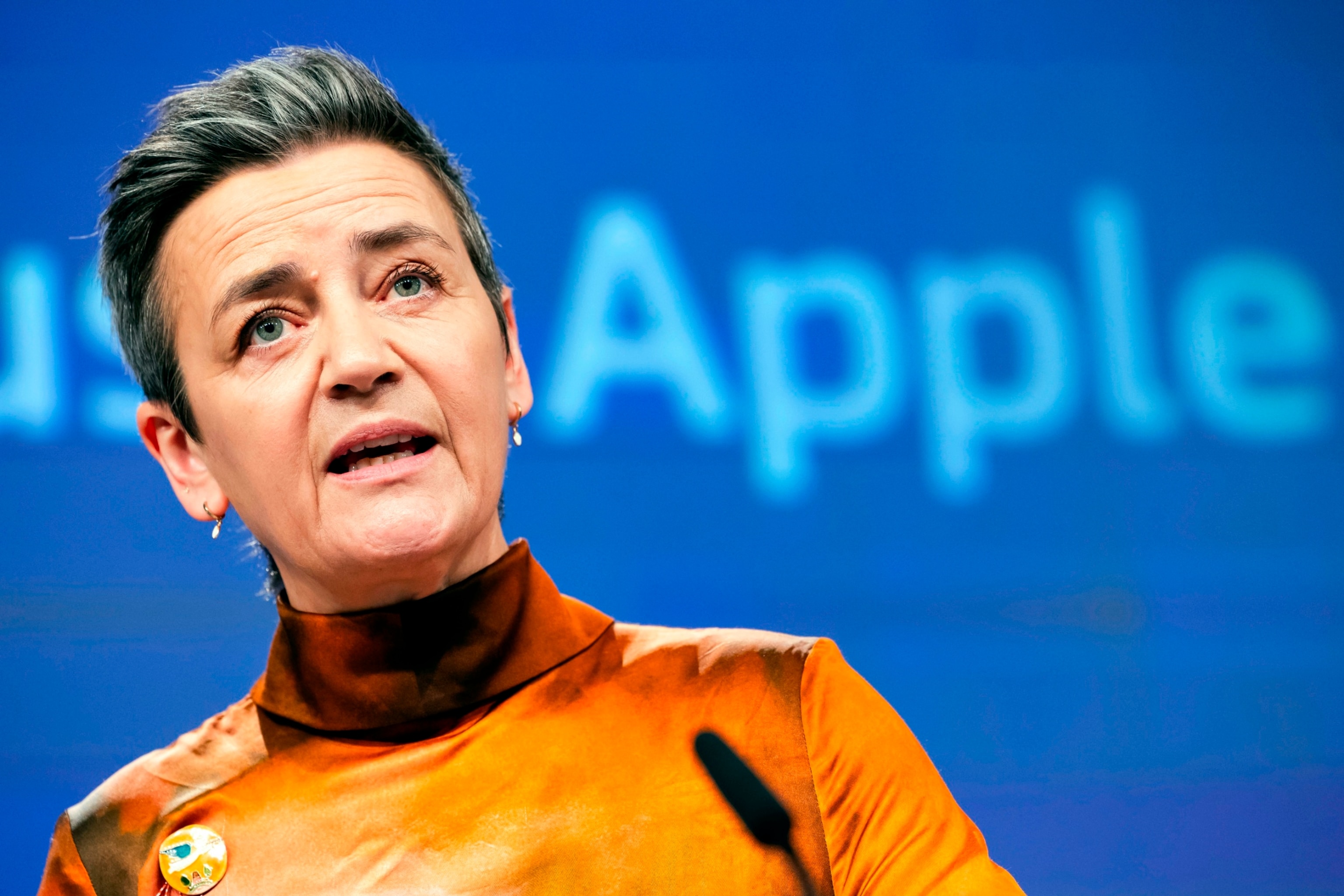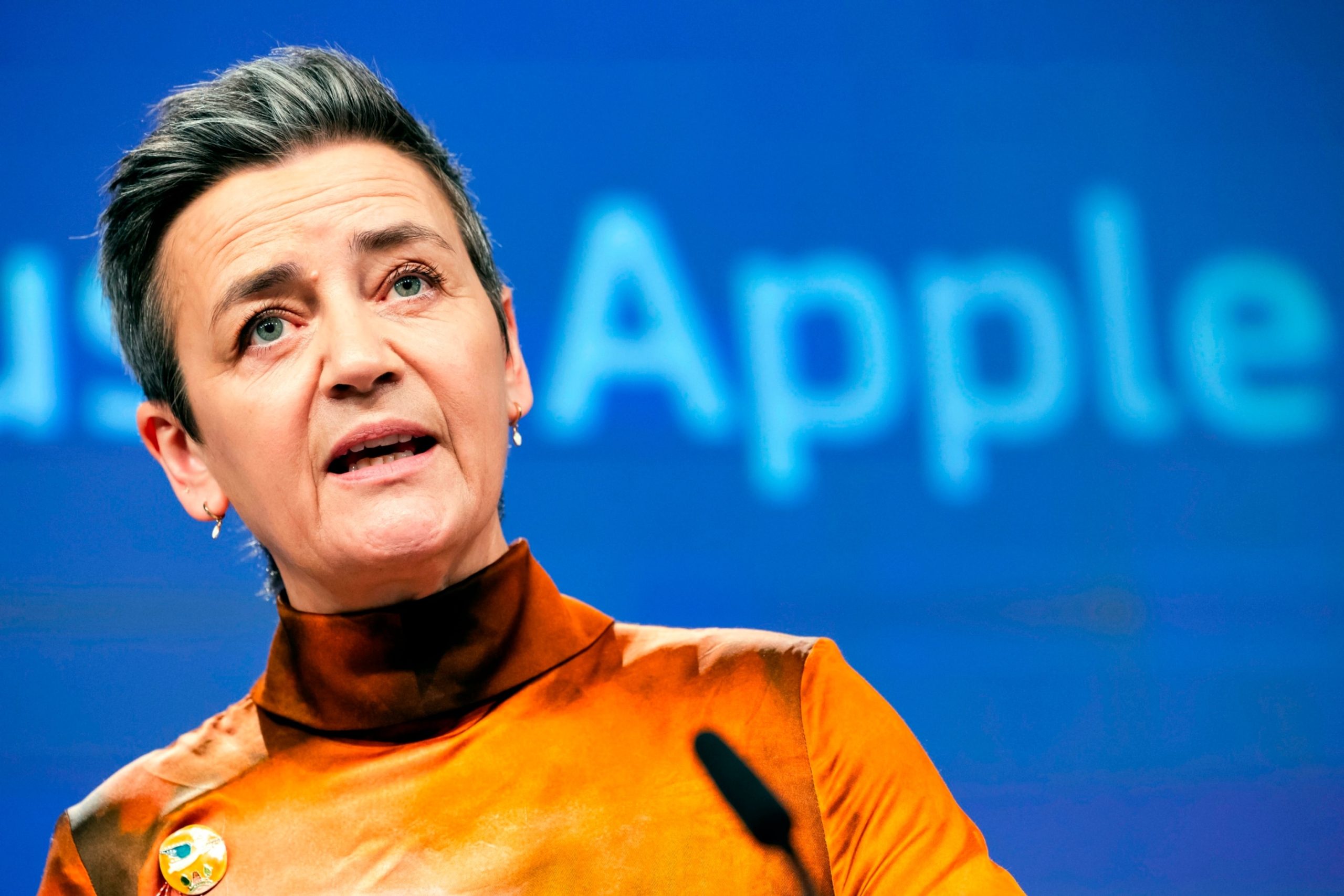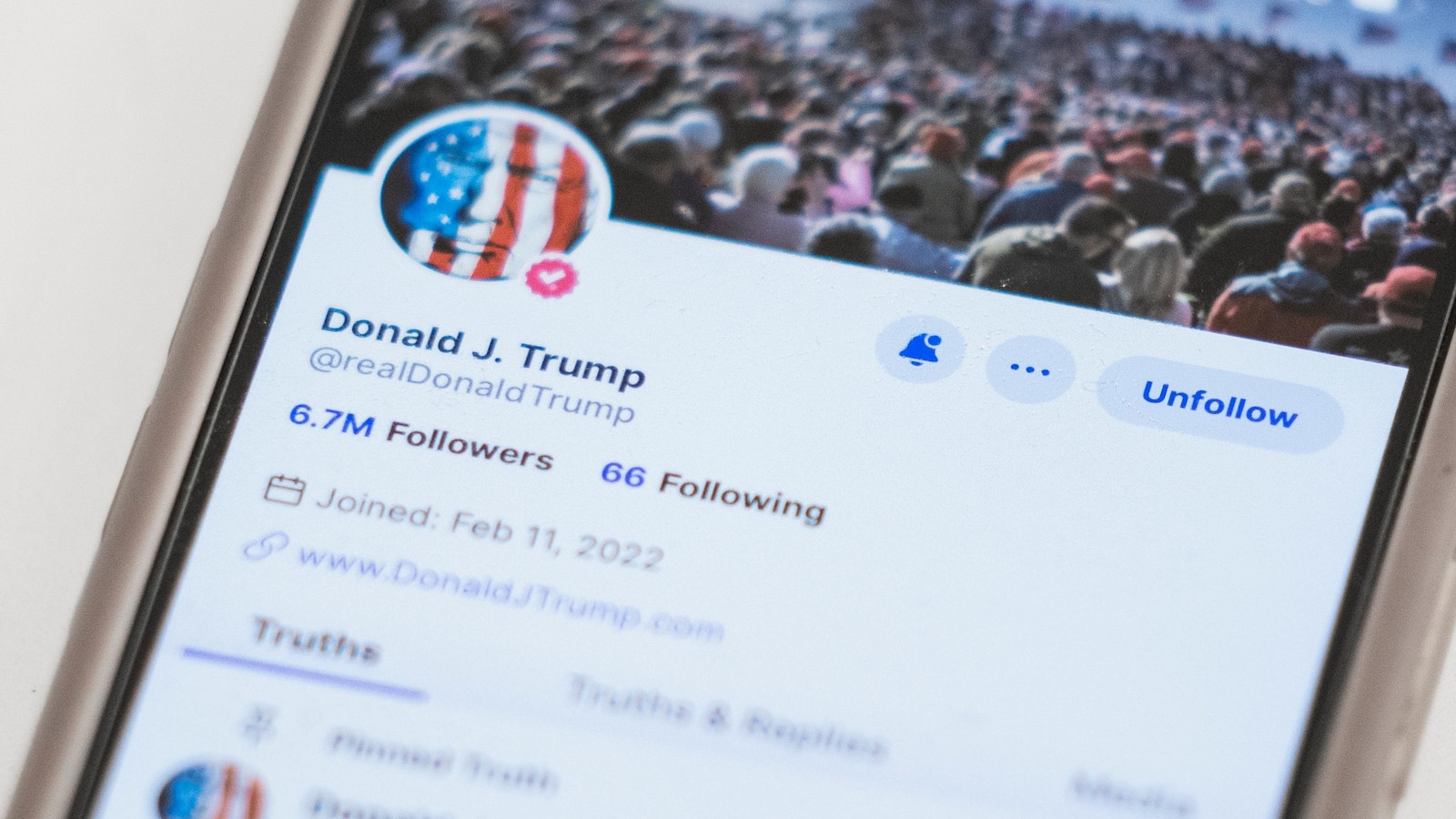Apple was fined nearly $2 billion on Monday by the European Union for abusing its market dominance to harm music streaming apps and its customers.
The tech giant, which offers its own music streaming service, prevented rival companies from promoting alternative and cheaper products that could be found outside of Apple’s App Store, the top EU antitrust regulator said.
“For a decade, Apple abused its dominant position in the market for the distribution of music streaming apps through the App Store. They did so by restricting developers from informing consumers about alternative, cheaper music services available outside of the Apple ecosystem,” Margrethe Vestager, executive vice president in charge of competition policy at the European Commission, said in a statement on Monday.
The fine, which amounts to 1.8 billion euros or $1.95 billion, marks the end of a five-year investigation initiated by Spotify, a top music streaming firm based in Sweden, the EU said.
The European Commission, the executive branch of the EU, said Apple committed antitrust violations over 10 years in which it prevented music streaming companies using the App Store from informing customers about better-priced alternatives or linking to the products.
Instead, customers paid high prices on the App Store in part because Apple charges commission fees for companies that sell their products on the platform, the European Commission added.

EU Commission vice president Margrethe Vestager addresses the media on Apple Music streaming services at EU headquarters in Brussels, March 4, 2024.
Geert Vanden Wijngaert/AP
In a statement on Monday, Apple disputed the ruling and vowed to appeal it.
“Apple has been a part of Europe for over 40 years, and today, we support more than 2.5 million jobs across the continent. We’ve helped markets thrive, promoting competition and innovation at every turn — and the App Store is an important part of that story,” the company said.
“So while we respect the European Commission, the facts simply don’t support this decision,” Apple added.
The Cupertino, California,-based firm has faced a series of legal fights over its App Store. The company charges a 30% fee for digital sales made by apps hosted in its App Store that reach $1 million in revenue.
In recent years, the company weathered a lawsuit from gaming company Epic over the 30% fee, alleging that the practice reflects an abuse of Apple’s monopoly power.
In September 2021, a federal judge said Apple was not acting as a monopolist, but ordered the company to allow in-app links that direct users to make purchases outside of the app that circumvent the 30% fee.
The European Union has recently fined tech giant Apple a staggering $2 billion for allegedly abusing its dominance in the App Store. This landmark decision comes after a lengthy investigation by the EU’s competition watchdog, which found that Apple had been unfairly restricting competition and stifling innovation in the digital marketplace.
The EU’s investigation focused on Apple’s strict rules and fees imposed on app developers who wish to distribute their products through the App Store. The watchdog found that Apple’s policies gave the company an unfair advantage over its competitors, as developers were forced to pay hefty fees and adhere to strict guidelines in order to have their apps featured on the platform.
In addition to the fines, the EU has ordered Apple to make significant changes to its App Store policies in order to level the playing field for all developers. This includes allowing developers to inform users about alternative payment options outside of the App Store, as well as giving them more freedom to set their own prices and terms of service.
Apple has vehemently denied any wrongdoing and has vowed to appeal the EU’s decision. The company argues that its policies are necessary to ensure the security and quality of apps on the platform, and that they ultimately benefit consumers by providing a safe and reliable digital marketplace.
However, critics of Apple’s practices argue that the company’s dominance in the App Store has stifled competition and innovation, leading to higher prices and fewer choices for consumers. They believe that the EU’s decision to fine Apple is a step in the right direction towards creating a more open and competitive digital marketplace.
Overall, the EU’s decision to fine Apple $2 billion for abusing its dominance in the App Store sends a strong message to tech companies that anticompetitive practices will not be tolerated. It remains to be seen how Apple will respond to the ruling, but one thing is clear: the digital marketplace is evolving, and companies will need to adapt in order to stay competitive in an increasingly regulated environment.



